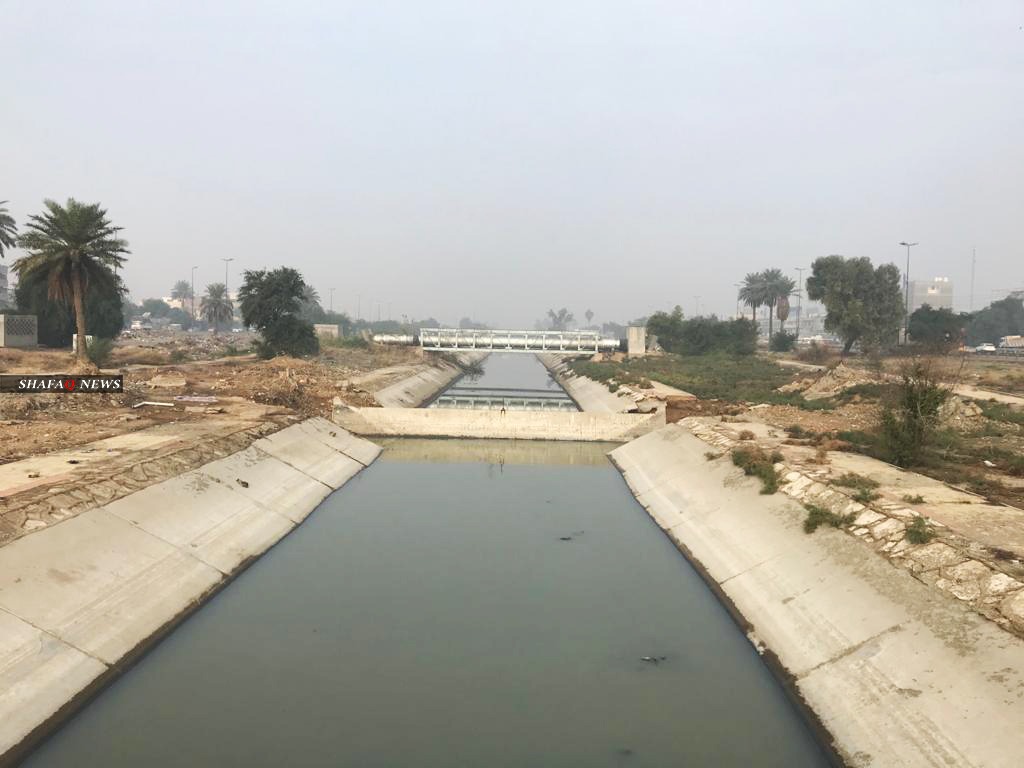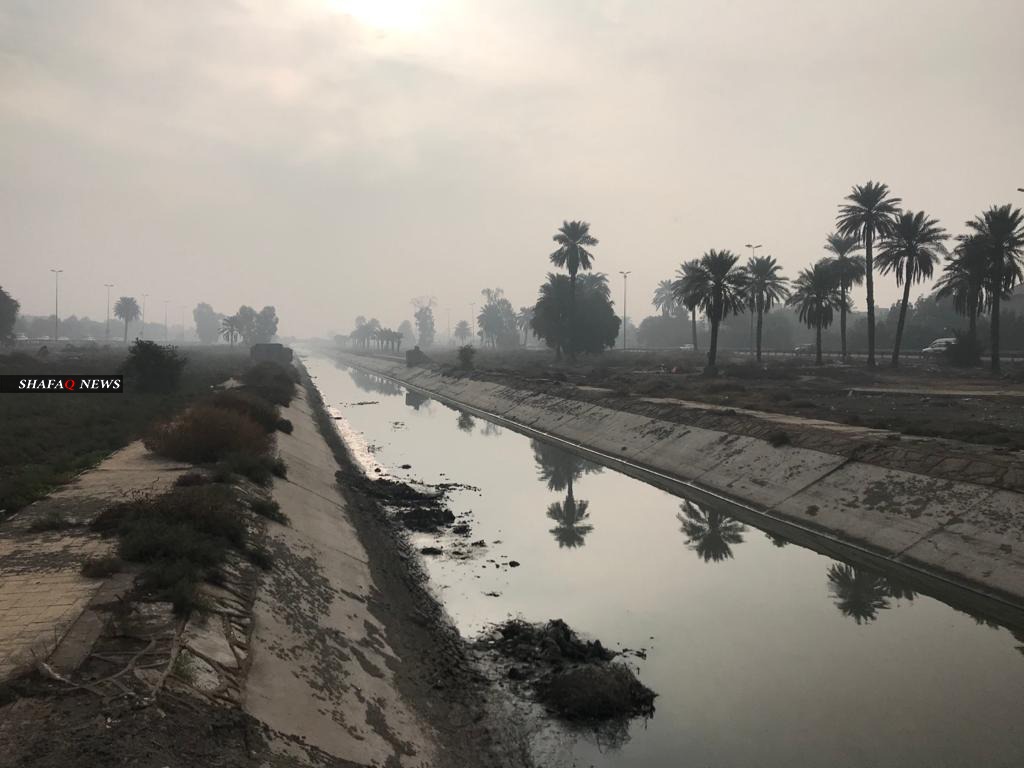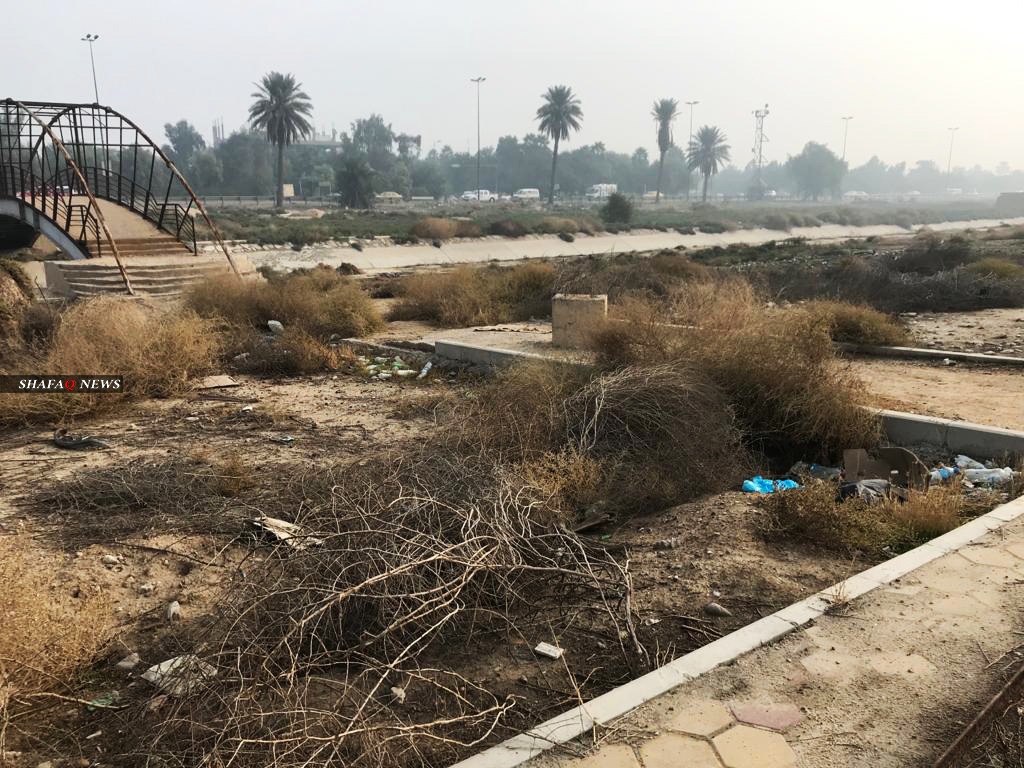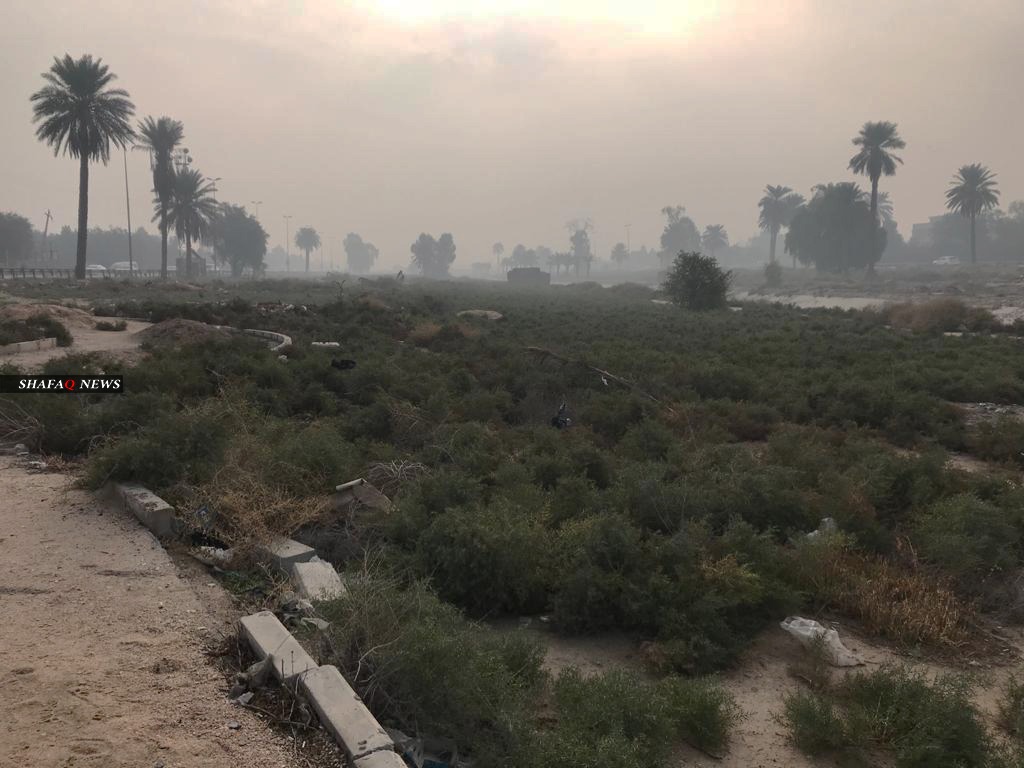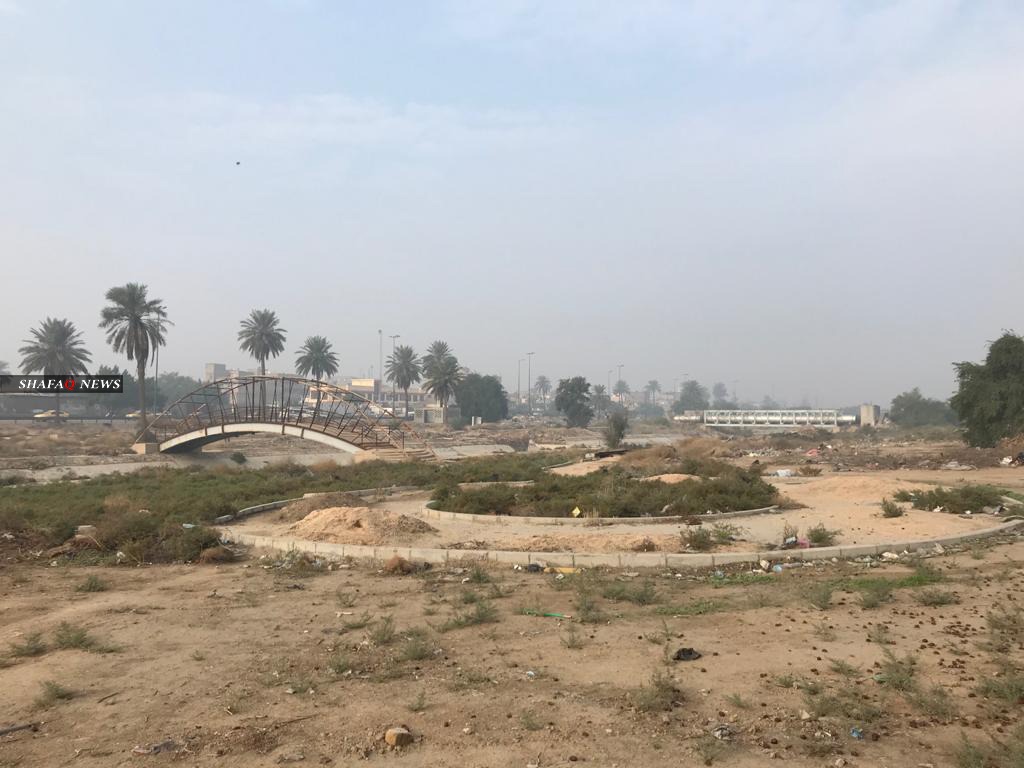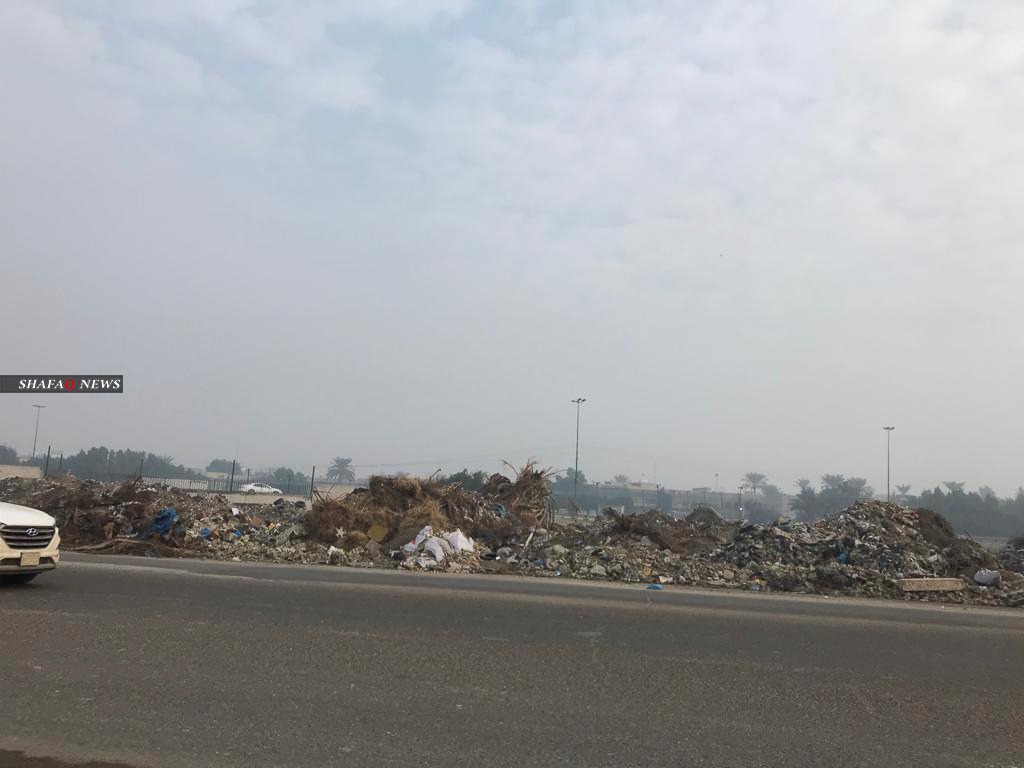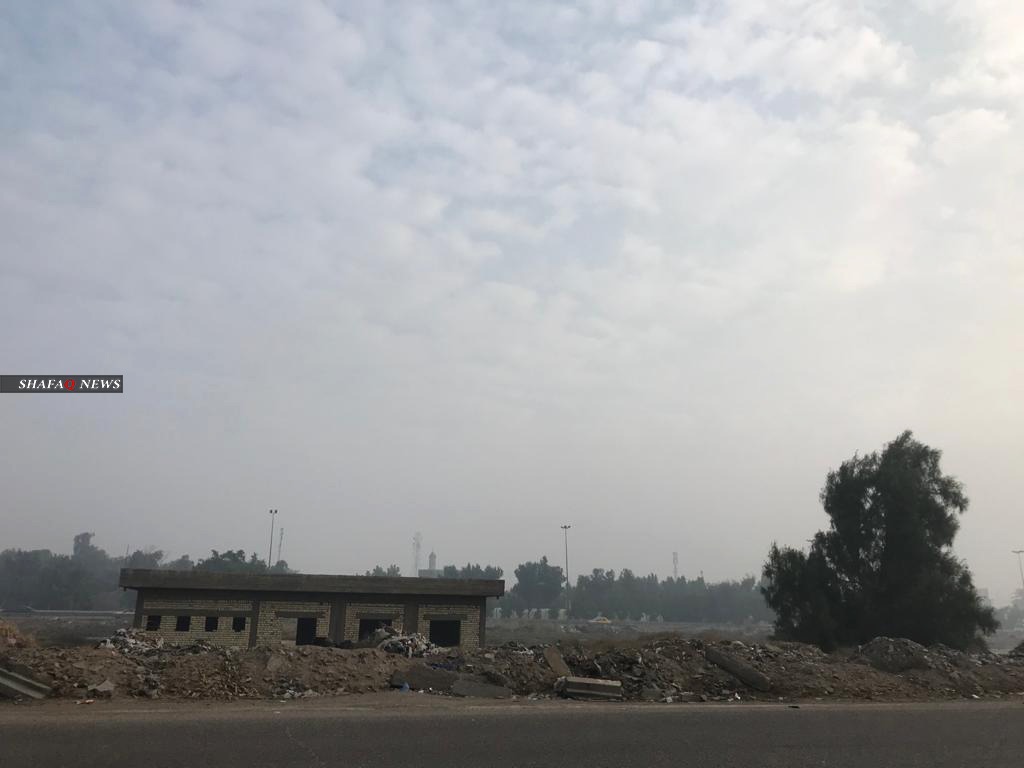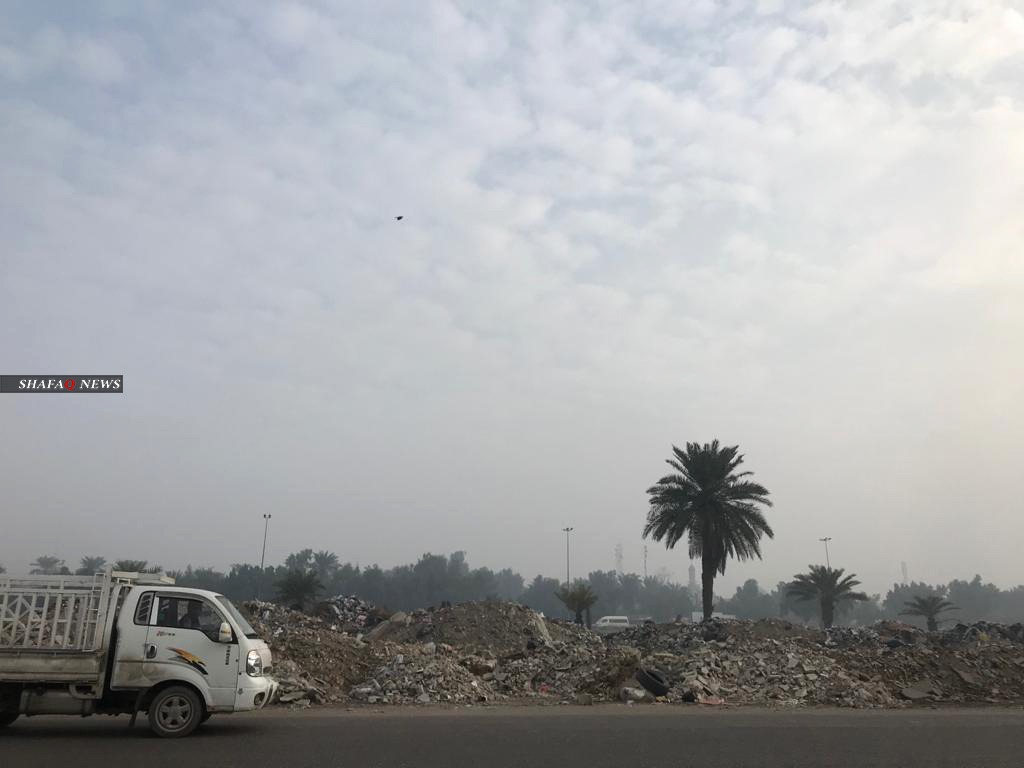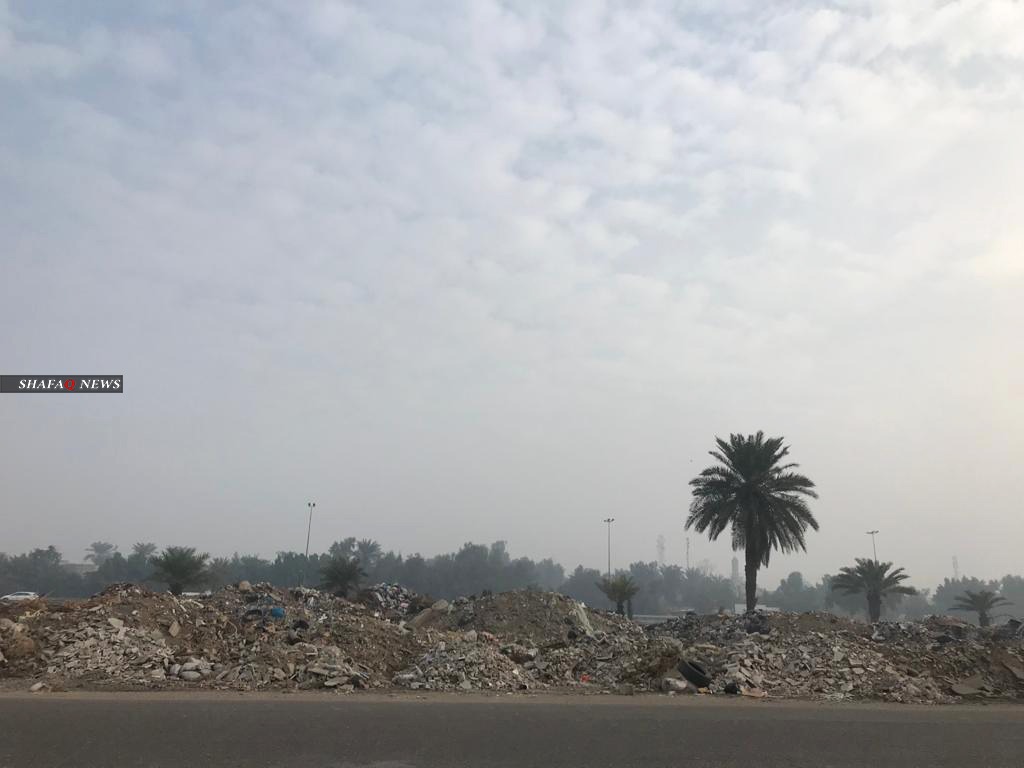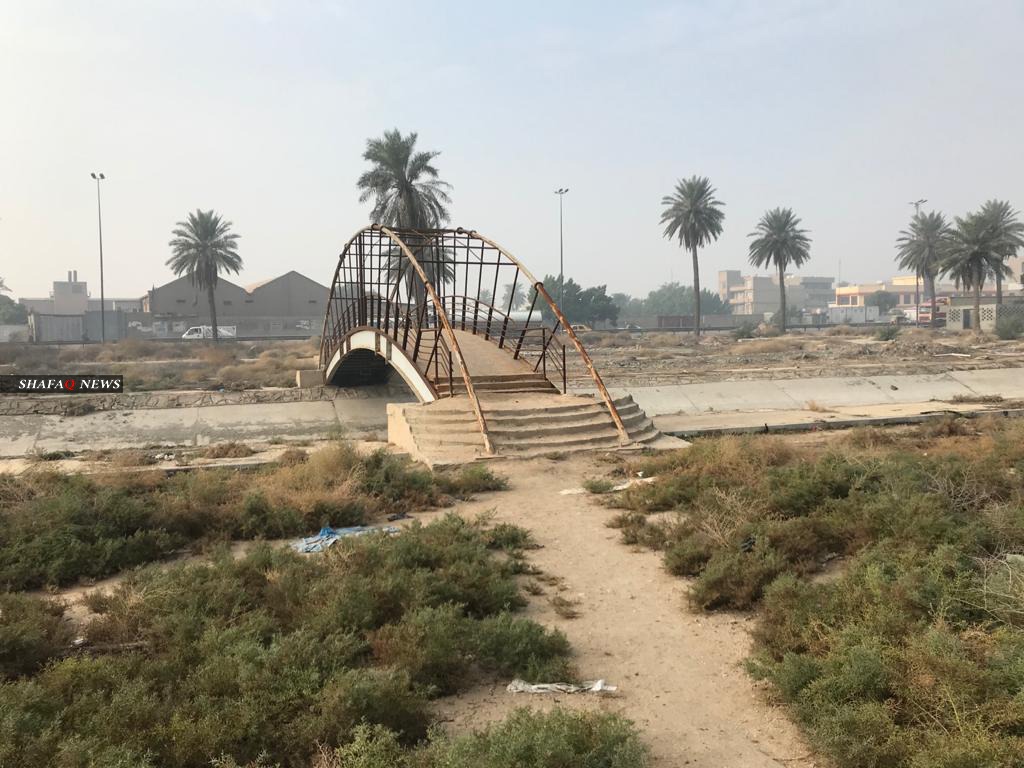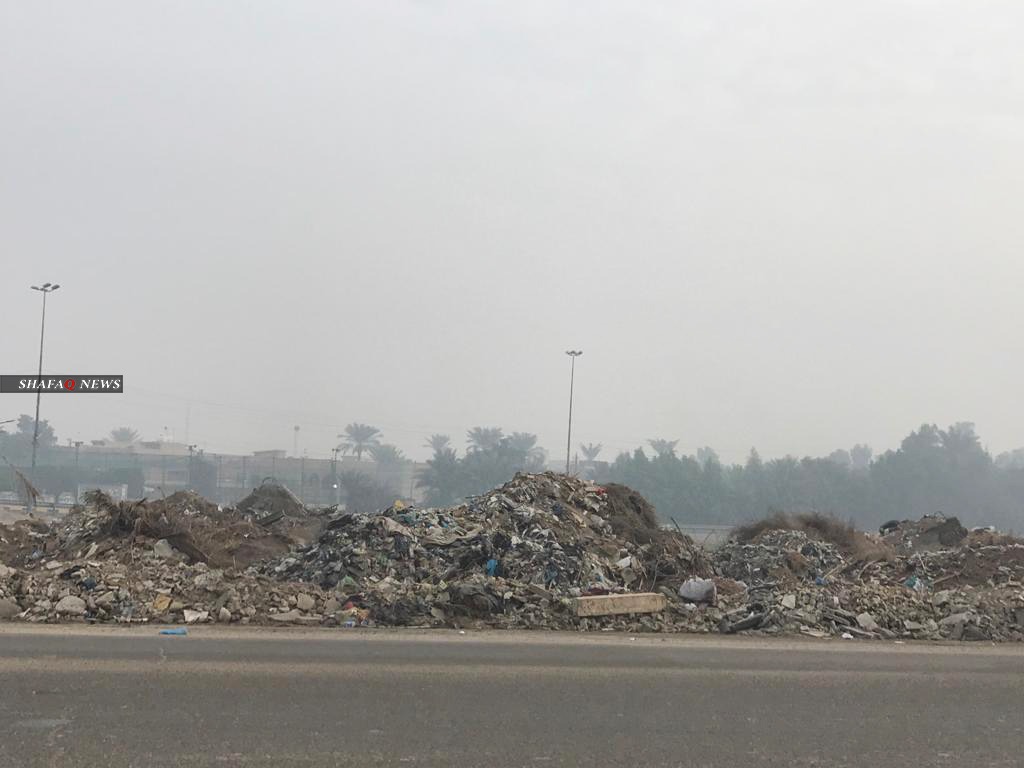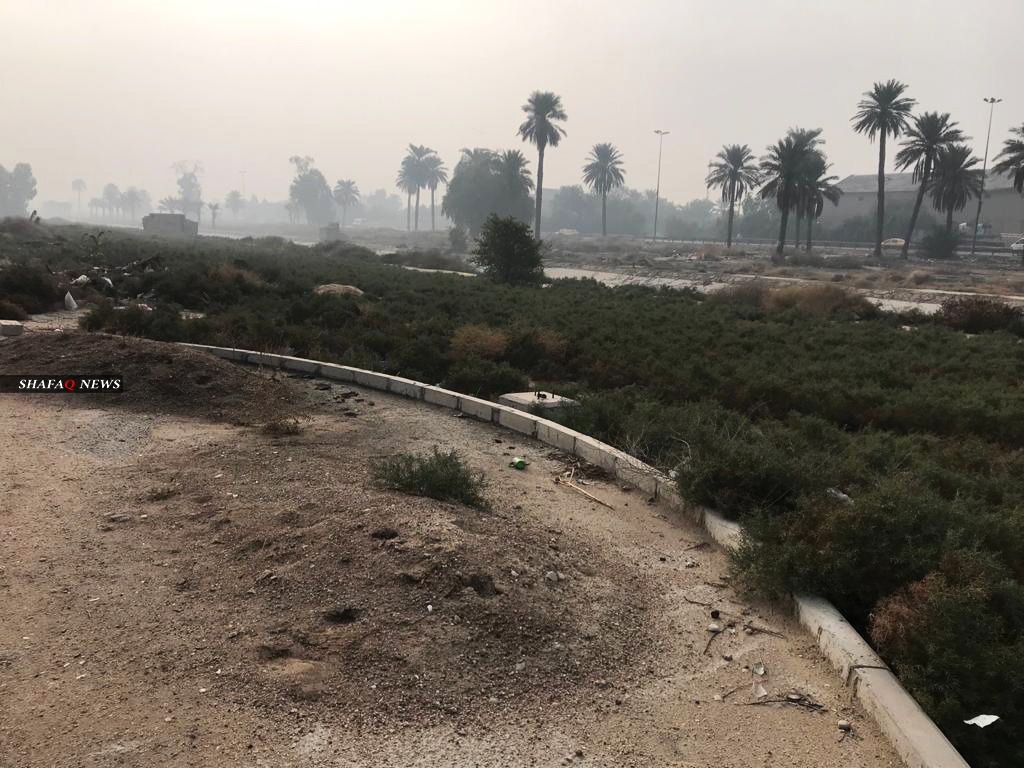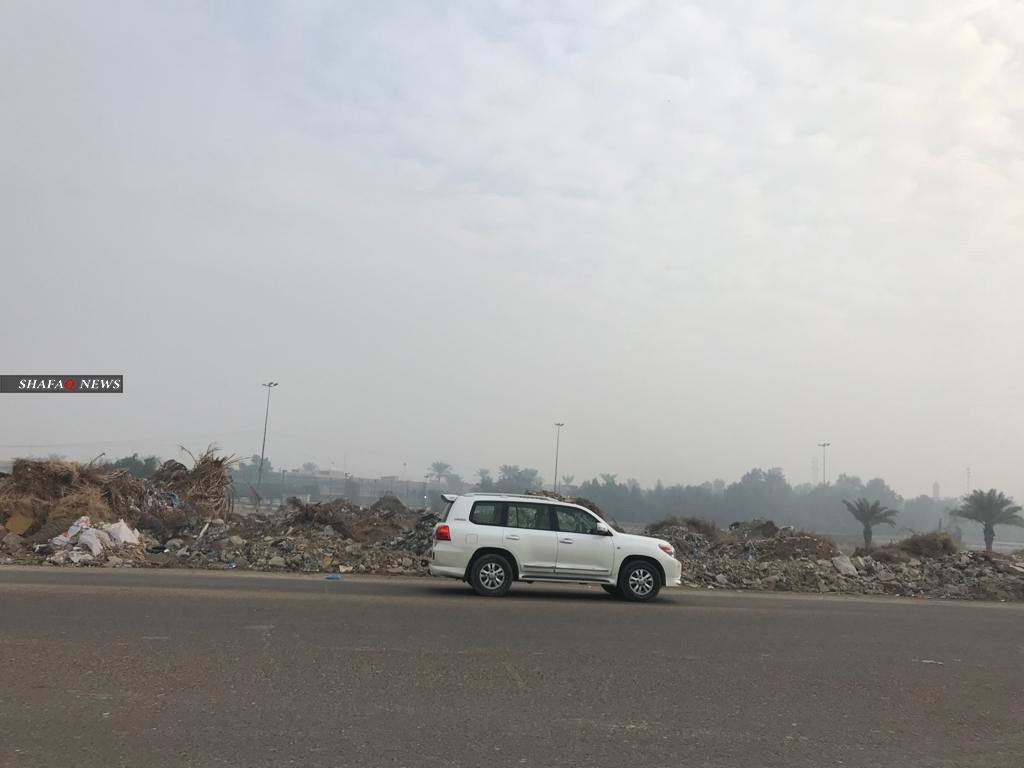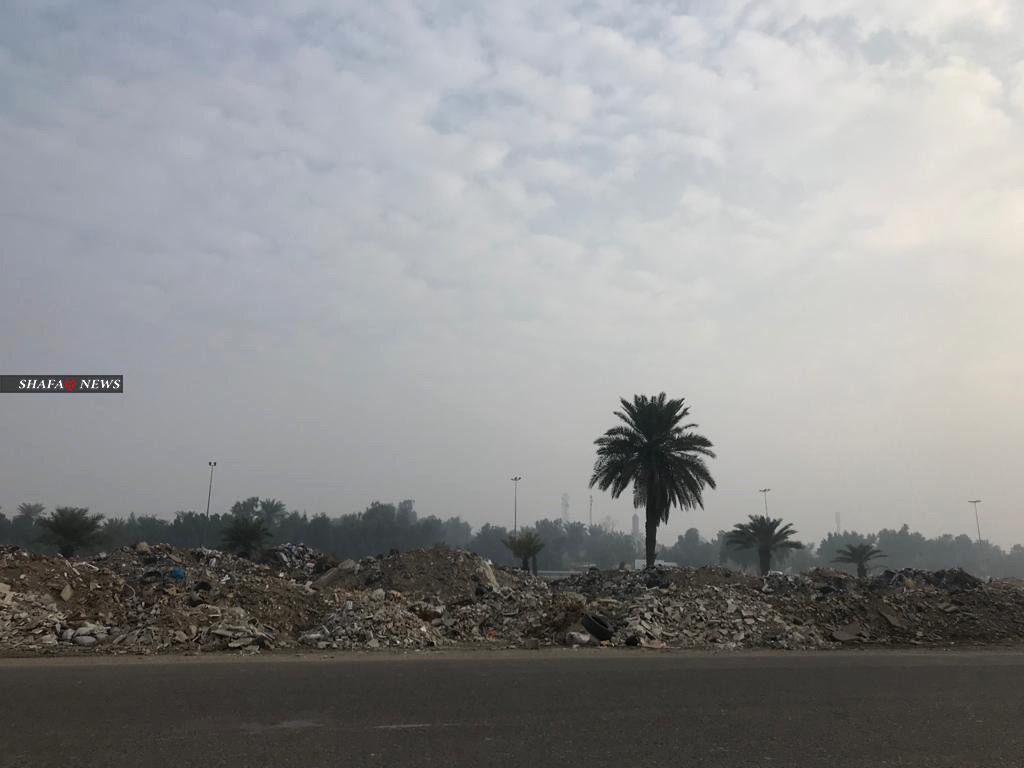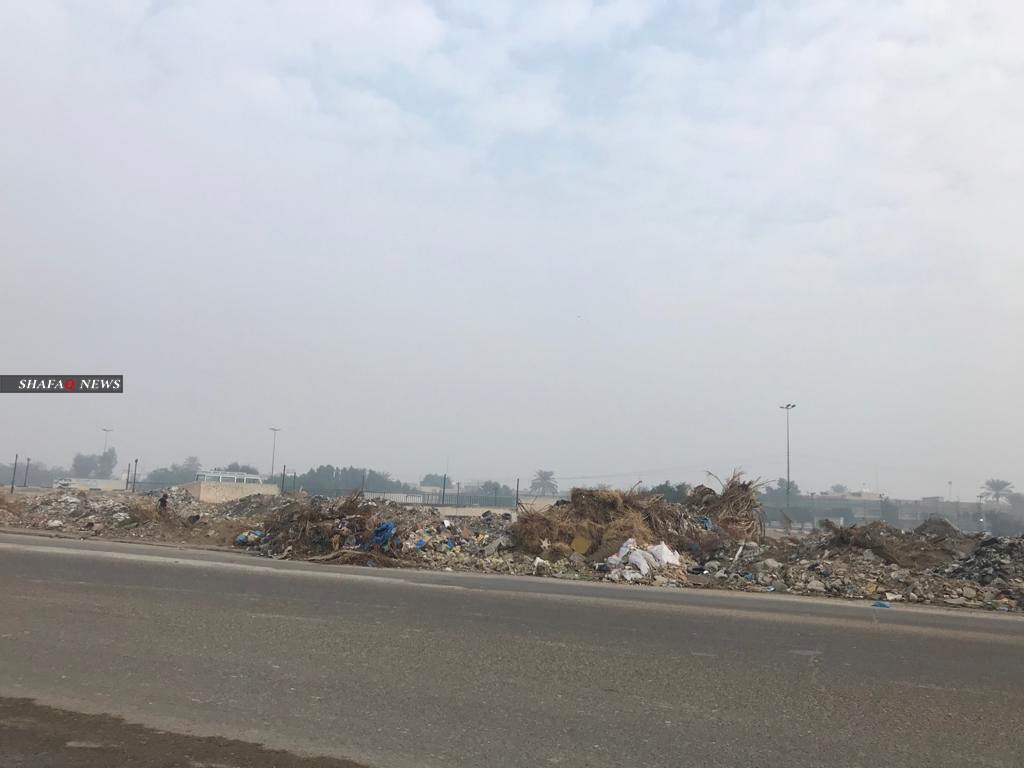"The Army Canal”..The dream project that turned into a nightmare for Baghdad’s people
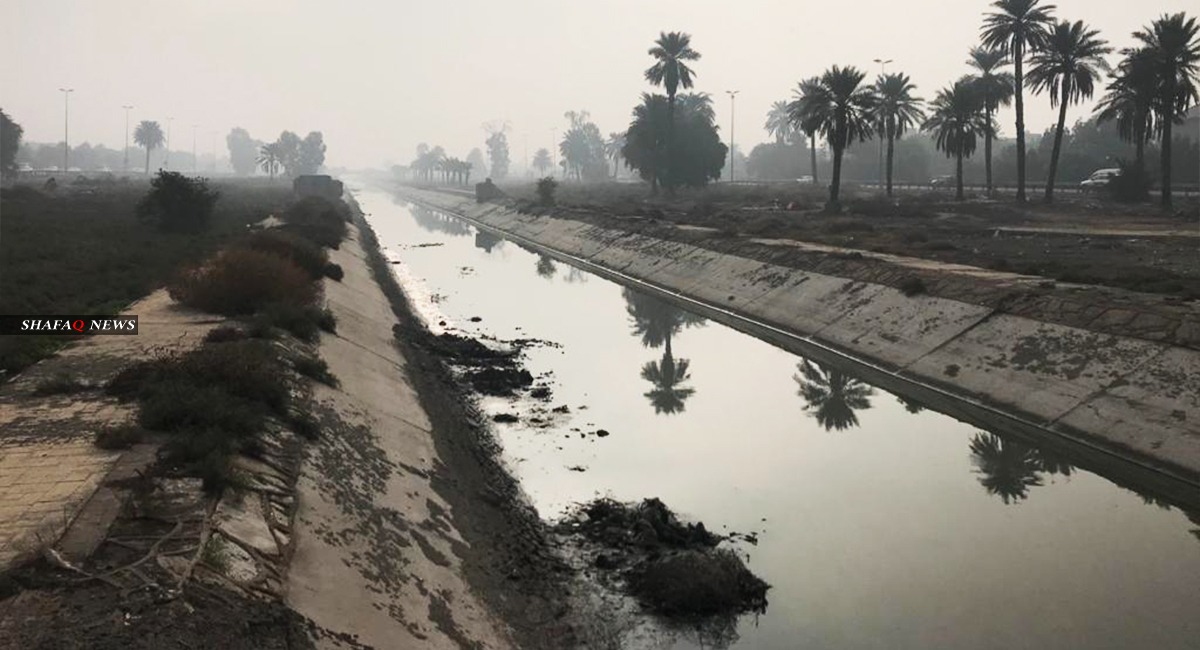
Shafaq News/ Nine years ago, when Iraqi authorities announced a huge entertainment project that would change Baghdad's interface.. Many residents dreamed of strolling along the Army Canal (a 25-Kilometre waterway connecting the Tigris and Diyala rivers) and enjoying the stunning scenery and entertainment of children and adults alike.
However, the years have passed without achieving the dream.. and at the end, it has turned to a nightmare for the capital’s inhabitants; as the project has become another new sign of garbage and piles of debris near populated houses, "The debris is dumped daily at the project site, and this is done in agreement with Baghdad’s Municipality. The project has become a dump for waste and debris and a shelter for bulk dogs. The area has become a danger to cars crossing the main street at night; due to the waste and the darkness surrounding the place.. several incidents have already happened”, a resident of The New Baghdad area (located across the Canal project), told Shafaq News agency.
Shafaq News agency’s lens spotted piles of waste and debris on both sides of the Army Canal road.
The Army Canal is an industrial waterway north of Baghdad; first inaugurated during President Abdul Karim Qassem’s era, on July 15th, 1961. It begins from the east of the Tigris (between the Area of Saba’ Abkar and the Locality of Al-Seifiya); the beginning of which is called the head of the canal.. It runs from there to the east of Baghdad and then south, where it flows into the Diyala River in the Rustumiyah area, in the locality of 707, southeast of Baghdad.
In June 2011, Baghdad’s Municipality transferred the development of the army canal to the Egyptian “Arab Contractors” company and the Iraqi “Al-Ghirri” company, for 146 million dollars as part of a plan to develop the capital.
The two companies embarked on the project, starting with cleaning the canal, closing the wastewater that was flowing into the canal, as well as plastering the 47-kilometer-long canal on both sides.
The project contract also included the construction of 21 parking lots, 12 tunnels, 16 children playground and fitness fields, 4 swimming pools with all its accessories, 4 summer theatres, 11 small restaurants and 40 food booths, 4,700 seating terraces, large numbers of trees -bearing the heat of the atmosphere, modern drip irrigation systems, and more.
The project was scheduled to be completed in 2013, but implementing it continued until 2015 when some areas east of the canal were flooded by rainwater; forcing Baghdad’s municipality to drain the water into the canal and causing the project to be sabotaged and suspended until funds were allocated for its resumption.
As the site became a dump for waste and debris, its near future does not look bright.
On June 11th, Iraqi Prime Minister Mustafa Al-Kadhimi said in a press conference that the cost of the Army Canal project exceeded 1 billion dollars. He also said that his revelation of this fact will upset some politicians, some of whom are his friends.
"The main reason for the Army Canal project's neglect and its conversion to a landfill is corruption, mismanagement, and lack of control over strategic projects –even though millions of dollars are spent on them”, said Uday Sha’alan, a member of the parliamentary services and reconstruction committee.
"There are major factors behind the neglect of the project..the most prominent of which are corruption, suspicious transactions, as well as the existence of political protection for the personalities and entities involved in this suspicious project. The Iraqi Parliament intends to set up a special committee to investigate the negligence of the Canal project -despite the waste of enormous amounts of money on it, over the past period”, Sha’alan stated to Shafaq News agency.
Iraq is among the most corrupt countries in the world -according to Transparency International's index over the past years. Observers say hundreds of billions have disappeared in Iraq since 2003.
Corruption, along with security tensions, are key reasons why successive governments have failed to improve the country; despite significant oil revenues.
The population complains of poor services such as electricity, drinkable water, health, education, and other services.
